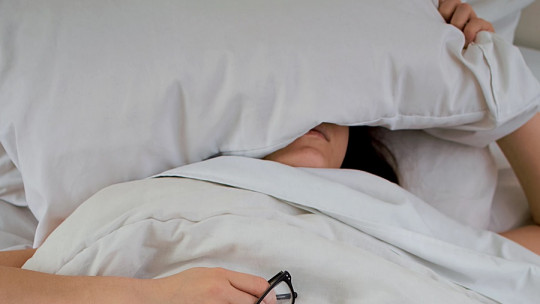
The time change, especially in March, is a very disruptive time of year. After months of getting up, going to sleep and doing our homework respecting more or less fixed schedules, a weekend comes and our clock moves forward an hour.
Although there are two, March and October, it is the one that begins summer time that we all have the most crossed because it is exactly that day when 2 o’clock is 3 and, therefore, we have to get up An hour before. There is sleep, tiredness and bad mood.
The way in which the time change affects our biorhythms is something that many of us have surely experienced firsthand, and now science has confirmed it, in addition to putting into controversy the need for this practice to, supposedly, save energy. Let’s delve into the debate.
How does the time change influence our biorhythms and associated psychological processes?
The time change, both in October and March, is that time of year that disrupts our schedules a little (or a lot). It is not fair to talk about both using the same measuring stick, because the truth is that, at least in Spain, October is very loved while March is seen as a bad drink, a time change that we do not care about. We can escape and, fortunately, we are lucky enough to do it on the weekend.
In the Spanish case, the controversy over the time change cannot be understood without understanding the controversy that exists with our own time zone Spain uses the GMT+1 zone on the peninsula, while the Canary Islands use GMT. Spain uses the same system as Central Europe, but not that of its neighbor Portugal or the United Kingdom, which are almost the same parallels.
The fact that Spain has a time closer to Berlin and not to Portugal, despite the fact that it has a region (Galicia) just north of the Portuguese country, has prevented the debate on the need to change time zones from being closed. Among the arguments used to defend and attack the status quo, a lot of use is made of the hours of sunshine, the alteration of biorhythms already well established in the population and the possible economic problems associated with it.

But, let’s focus exclusively on the time change. This practice was established in Europe during the First World War, a time when traditional sundials had already been left far behind. With the widespread use of mechanical clocks, which worked outside the hours when the sun deigned to appear in the sky, the population’s way of managing time was not in accordance with the hours when there was sunlight.
It is for this reason that it was decided to make two annual time changes strategically, at times when the change meant taking advantage of the hours of sunshine. Thus, with the change of October in which we wake up an hour later we do so because the sun also rises later, while in March we have to wake up an hour earlier because the sun is rising earlier and earlier. The time change fulfills its main purpose, maximizing exposure during sunny hours
But although this advantage is fulfilled, the other arguments used to defend its use have been questioned. It has always been said that these time changes allow us to save, under the logic that if we have work and leisure schedules during times when there is always sunlight, we use less electricity. This idea, however, has long been questioned, with both the European Commission itself and the Spanish Electricity Network indicating that this supposed saving, if it exists, is minimal.
Given the increasingly diminishing evidence that it really serves to save, many have questioned whether this time change is really useful or if it would be better for Spain (and any country in the same situation) to decide to apply a time zone adapted to its geographical condition without need to have to change the time twice a year. The reason for this is that, In a world in which chronobiology is becoming more important, it is becoming clear how the time change affects our biorhythms
Alteration of biorhythms
But what are biorhythms? On many occasions it is said that our body has as its a kind of internal clock that tells you what to do and when This clock is what “warns” us when we have to go to sleep, making us feel more tired when night approaches and more alert when there are more hours of sunlight. It is what makes us have established schedules in a completely natural way and is closely related to circadian cycles.
As the months go by, these biorhythms become more and more established, making us completely accustomed to our routine. The problem with time change is that there is no “natural” way to notify our internal clock that what was 2 o’clock yesterday is 3 o’clock today and, therefore, it has to go forward one hour. As it continues with the pre-established schedules, even though the change is minimal, our brain is unadapted and feels like a kind of “jet lag”.
This jet lag is especially noticeable at the turn of summer, that is, the one that makes us lose an hour Our body has to get used to doing things an hour earlier than it used to do, which often translates into loss of sleep in the first few days, this being one of the main effects of the time change. With this we also feel tired and fatigued, in addition to a certain disorientation.
Although the time change rarely involves serious problems, it is worth saying that certain complications can occur depending on how sensitive the person is to the change and how little respect they have had for the new schedules. Some people suffer from problems such as stomach problems, mood swings, loss of concentration and, if the sleep loss is very severe, headaches and migraines.
Contrary to one of the main reasons why it is applied, which is that the time change translates into greater savings and greater productivity, the truth is that taking into account the effects of the alteration of the biorhythm everything seems to indicate just the opposite. Company workers feel more tired during the two weeks following the change in March, with a greater risk of accidents and lower productivity
How noticeable the alteration of these biorhythms is depends a lot on each person, but it must be said that age is one of the most important factors. Children, adolescents and older people tend to be the ones who notice it the most, especially younger children and those over 50 years old, with the March change being the most difficult to adapt to. Likewise, even though it is only an hour difference, as a general rule the entire population finds it difficult to synchronize their internal clock with the new times.
The scientific community has gone one step further and, although it should be noted that the time change has short-term effects that end up being overcome with the passage of time, the danger of altered circadian cycles is already known.
We have an example of this in the case of people who work at night or who do not sleep when appropriate being more likely to suffer from different pathologies such as diabetes, cardiovascular diseases, obesity and, also, psychological problems, including depression and anxiety.
And why isn’t the time change cancelled?
Although there is increasing evidence that time change changes our biorhythms, canceling it is a complicated issue, especially because it is not only a matter of schedules.
Let’s think about the case of Spain, where we use GMT+1. The reason we use that zone, in addition to historical reasons, has to do with our economic relationship with France and Germany, which, if we change to a zone other than theirs, could have an impact on issues such as tourism and trade.
Another reason why it has not been decided to cancel it is that, although there are people who are greatly affected by it, The period of adaptation to the new schedules, although uncomfortable, does not usually last more than 5 days While it may be annoying to have to get up an hour earlier in March, and nice to do so an hour later in October, as the weeks go by we end up regulating our schedules and coordinating with the rest of society and their time demands.
There is also the fact that there are countries where if the time is not changed at all there are regions where the sun would rise at times that would throw off anyone’s schedules. Returning to the case of Spain, if in this country we maintained winter time all year round, on the Mediterranean coast it would dawn at 5:00 am in June, while if summer time were continued, the Atlantic coast would not see sunlight. until 10.00 am in the month of December.
In addition, you have to try to see the positive side of the time change. Thanks to these two time changes a year we can enjoy more hours of light in the afternoon which although it is not so proven that it interferes with energy savings, it is true that the majority of the population prefers that period of the day to dedicate it to leisure and free time, a moment that is more enjoyed with the Sun still in the sky. sky but not in the total darkness of the night.








